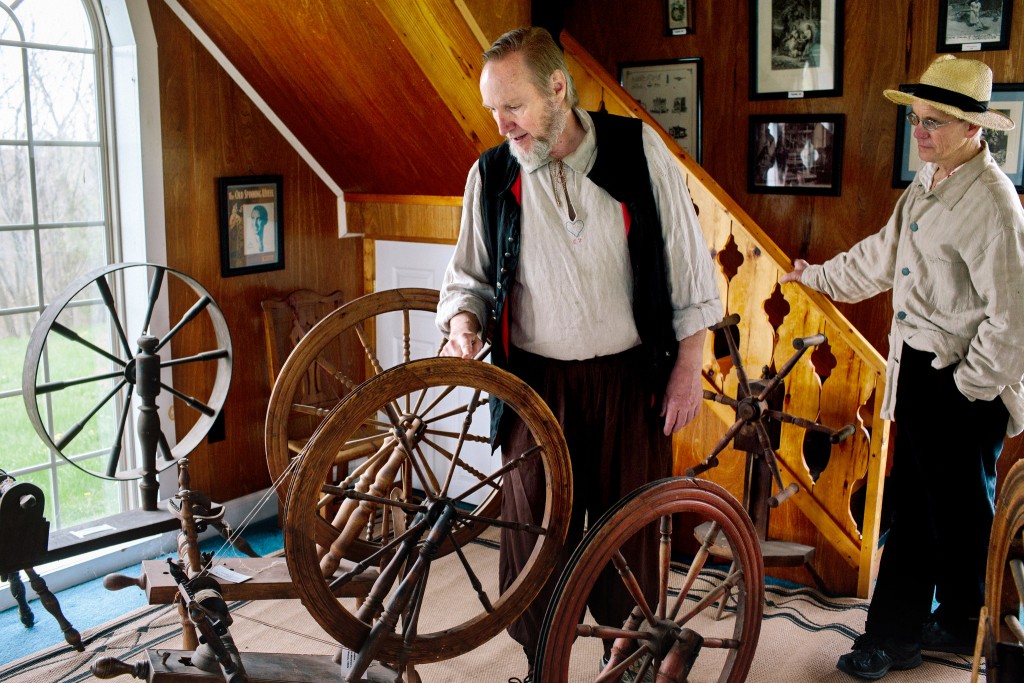Photo Christopher Gregory for the New York Times
Inspired by 18th century Moravian brothers, two men tried to start a commune of ‘Harmonists’ and failed. The New York Times profiled these two aspirants and their dream of recreating a Colonial-era farming settlement united by a common spirituality.
They weren’t sure what type of spirituality to base the commune on, and struggled to articulate their ideals; between the lack of a clear, communicated vision and the difficulty of farming with Colonial-era techniques and tools, their 63 acre experiment never attracted any members and these days serves as a home where the men write books and display their antiques.
Writer Penelope Green documents their meeting as two young gay men in Salt Lake City, at a consciousness-raising group in the 1970s, and the challenges and joys they experienced learning to farm while holding jobs and negotiating bigotry and kindness from their neighbors.
From the article:
There were moments of incredible joy. The day they completed the reconstruction of what they called the community house, an 18th-century log cabin with a marvelous peaked roof that they rescued from an industrial park and that took 10 years to remake. Eating outside with the animals. (“They were like our family,” Johannes said. “But they did eat all the flowers.”)
But there was menace, too. This rural township was not overwhelmingly welcoming to two young gay men and their dreams to populate a fledgling farm. They always knew when the bars closed. They would hear engines revving, and the shouts would begin: “We’re going to kill you.” “Go home.”
The men did find temporary members over the years, but found that most either weren’t interested in helping with the farm, or simply didn’t stay. They are now looking for a publisher for their second book, a comedic memoir about their lives. Their first book, The Big Book of Flax, is a comprehensive guide to the history of flax.
There are over 2,500 intentional communities listed at the Fellowship for Intentional Community website. Communities range from the traditionally religious monastic to more free-wheeling, counter-culture inspired ecological villages and agricultural faiths like the modern Harmonists profiled in the Times. What do you think is so enduring about the idea of an intentional community? Why do you think they start and sometimes fail?
What do you think the two should title their planned memoir?
Posted by David Streever

